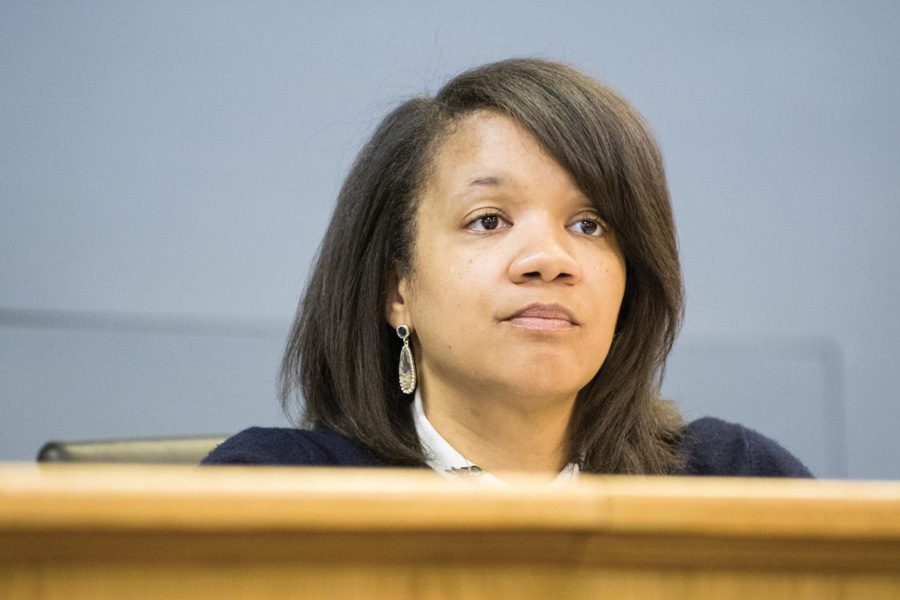Evanston set to participate in year-long affordable housing initiative
Daily file photo by Colin Boyle
Ald. Robin Rue Simmons (5th). Evanston is participating in a new affordable housing initiative.
November 7, 2019
The National League of Cities — an organization that supports local leaders to improve cities — selected Evanston to participate in its 12-month technical assistance initiative, Cities of Opportunity.
City officials traveled to Baltimore, Maryland on Wednesday to a seminar hosted by the NLC that is focused on creating healthy and equitable communities throughout the country.
After an application process, Evanston was selected as one of six cities to participate in this year’s program. Members of Evanston’s Cities of Opportunity team focus on using the NLC’s advice to address the city’s lack of affordable housing units. The team includes housing and grants division manager Sarah Flax, Health and Human Services Director Ike Ogbo, Ald. Robin Rue Simmons (5th) and Robinson Markus from the Evanston Development Cooperative.
At the conference, the team heard from experts in affordable housing and officials from cities that have already been through the technical assistance program.
The Cities of Opportunity initiative is a relatively new program, and Evanston will be part of the second cohort of cities to participate along with Dubuque, Iowa; Duluth, Minnesota; Las Vegas, Nevada; Napa, California; and South Fulton, Georgia.
“We get to hear from others who are wrestling with the same challenges,” Flax said. “We hope that by sharing information, we can get to solutions faster.”
Flax emphasized that the team is still in the planning phase of their work and that they are still working on understanding the problem of affordable housing. She said the end goal is to improve the overall well-being of Evanston residents, especially those who have been historically underserved.
Ogbo, who led Evanston’s application process for the Cities of Opportunity initiative, said that public health and housing are intertwined and that access to affordable housing is a determinant of community well-being.
“Housing affordability and health really go hand in hand,” Ogbo said. “When you worry about the affordability of your home, that can affect your mental health.”
One way city officials plan on addressing the affordable housing shortage is by building accessory dwelling units. ADUs are detached units built on the same property as a larger single-family home, such as coach houses. ADUs offer an opportunity to increase the number of affordable rental units while adhering to Evanston’s single-family zoning laws, Flax sad.
Rue Simmons said there are several benefits to expanding the city’s use of ADUs. She said ADUs improve property values, stimulate the economy and increase affordable housing. Additionally, the ADU model proposed by the Evanston Development Cooperative, the team’s external partner, uses environmentally safe practices and products.
Rue Simmons added that improving access to affordable housing for minority communities in the city will help to preserve the city’s demographic diversity.
“Our black population is declining, now less than 17 percent,” Rue Simmons said. “More and more families are leaving town because of the lack of affordability in housing and lack of access to living-wage jobs.”
Flax said the team sees how many of Evanston’s health disparities, including in average life-span and opportunity gaps, are housing-related.
She hopes that with the help of the NLC, Evanston can move toward being a “healthy and thriving” city.
“Our vision of being the most livable city in America requires us to take a hard look at what is creating inequitable outcomes,” Flax said.
Email: [email protected]
Related Stories:
– Evanston aldermen further affordable housing efforts
– Evanston Development Cooperative proposes coach houses as alternative affordable housing


